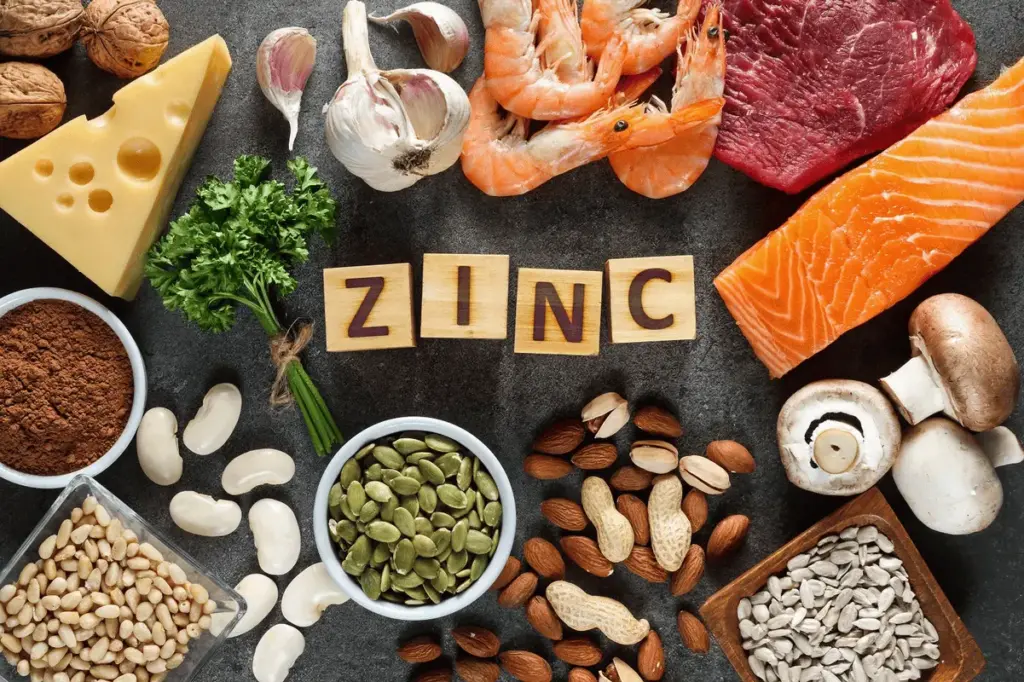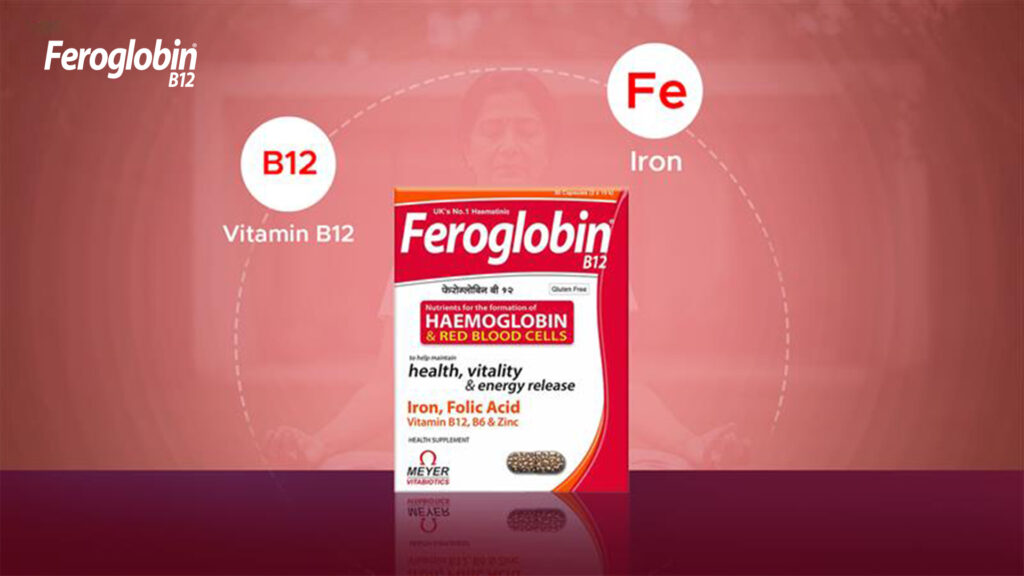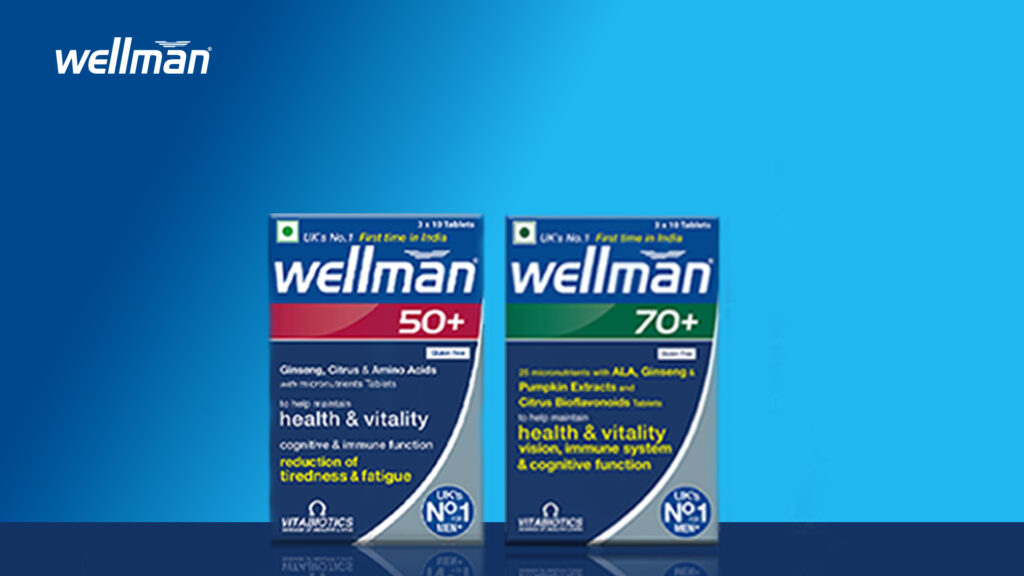Zinc Rich Foods

It’s crucial we get enough of the mineral zinc and one way of doing so is including zinc-rich foods in our diet Zinc plays a role in many aspects of our health, from contributing to a healthy immune system, through to helping maintain normal vision. So how much do we need? In the India, ICMR recommends zinc intake of 5-9 mg for children from 1 to 12 years of age. 11 to 12 mg of iodine is recommended for 13 to 17 years of age. 10-12 mg of zinc is recommended for males and females. RDA for pregnant and lactating mothers is 12 mg of zinc per day.
However, some experts believe that there are times when higher levels of zinc could be beneficial. Below are the benefits of zinc as well as the many foods that can help with your daily intake.
The Benefits of Zinc
This essential trace element plays a role in over 200 enzymes within the human body. It contributes to the normal functioning of the immune system as well helping to process carbohydrate, fat and protein in food. Zinc also plays a role in the process of cell division and contributes to the protection of cells from oxidative stress.
Zinc contributes to the maintenance of normal vision and cognitive function too, as well as contributing to the maintenance of normal bones, skin, hair and nails.
Then there is the role that zinc plays in normal fertility and reproduction.
Male semen contains a staggering 100 times more zinc than blood. Plus, male sperm can be damaged by free radicals, produced when we are exposed to excessive cigarette smoke, pollution, sunlight and other modern day factors. Zinc helps to protect cells from oxidative stress, caused when they are exposed to too many free radicals.
Wellman offers comprehensive support for men’s fertility and reproduction. It includes on average 15mg of zinc, contributing to normal fertility and reproduction and the maintenance of normal testosterone. Wellman Conception also provides vitamin B12, vitamin D and 400µg of folic acid (vitamin B9) as well as selenium, Ginseng, Co-Q10, Inositol. Ideally, one tablet should be taken daily, three months before trying to conceive.
Another benefit of zinc is that it contributes to the maintenance of normal testosterone levels in the blood.
The Best Zinc Foods
There are a number of foods that provide varying levels of zinc. Many of these are suitable for vegetarians and vegans, however the foods containing the highest levels of zinc are shellfish and red meat. Try to include the below foods into your diet…
- Oysters, 6 – 52mg
- Beef steak, 100g – 11mg
- Hemp seeds, 28g – 3mg
- Lentils per cup – 3mg
- Squash and pumpkin seeds, 28g – 2mg
- Pine nuts, 28g – 2mg
- Pork chop, 100g – 2mg
- Chicken leg, 100g -2mg
- Firm tofu, 100g – 2mg
- Lean pork chops, 100g – 2mg
- Spinach, per cup cooked – 1.4mg
- Oatmeal, 100g – 1mg
- Low fat yoghurt, 100g – 1mg
- Brazil nuts, 28g – 1mg
- Avocado, one whole – 1.3mg
- Shiitake mushrooms, 100g – 1mg
- Raspberries, per cup – 0.5mg
- Blackberries, 100g – 0.5mg
- Broccoli, 100g – 0.5mg
- Apricots, 100g – 0.2mg
Incorporating Zinc into Your Diet
There are plenty of simple meals that incorporate the above foods, to help increase your intake of zinc. For breakfast, try low fat yoghurt mixed with oatmeal, topped with raspberries, blackberries and chopped apricots. Sprinkling hemp seeds on top can give an extra boost. For lunch or dinner, a spinach-based salad with sliced avocado, sautéed shiitake mushrooms and either fried tofu or lentils provides a healthy dose of zinc.
Taking Zinc Supplements
If you feel that you’re struggling to hit your recommended daily intake of zinc through food, then a supplement can help safeguard your intake.
Categories
- Beauty, Hair, Skin (19)
- Kids-Teens Health (3)
- Men's Health (14)
- Mind-Body (62)
- News-Research (9)
- Others (2)
- Women's Health (22)
Top Selling Products
Wellwoman 50+ multivitamins for women over age 50 years with Vitamins, Iron, calcium, amino acids to support menopausal symptoms, maintain energy, Vision & Heart health| Vegetarian 30 Tablets
₹516.80 (₹17.23/Tablet)
MRP: ₹646.00 (Upto 20% off)
Wellman 70+ Multivitamin Tablets | Ginseng, Pumpkin Extract & Citrus Bioflavonoids | Supports Health & Vitality | Boosts Vision, Immune System & Cognitive Function | 30 Veg Tablets
₹379.20 (₹12.64/Tablet)
MRP: ₹474.00 (Upto 20% off)
Wellman 50+ Multivitamin Tablets for Men Aged 50+ | Ginseng, Citrus & Amino Acids | Support Health & Vitality | Boost Cognitive & Immune Function | Reduce Tiredness & Fatigue | 30 Veg Tablets
₹360.00 (₹12.00/Tablet)
MRP: ₹450.00 (Upto 20% off)
Wellwoman 70+ Multivitamins For Women Over Age 70 With Biotin, Isoflavones, Zinc, Vitamind To Support Physical & Mental Health, Improve Cognitive Function & Energy Levels Vegetarian 30 Tablets
₹374.40 (₹12.48/Tablet)
MRP: ₹468.00 (Upto 20% off)
Wellman Multivitamin Tablets for Men – 21 Nutrients – Boost Immunity, Support Reproductive Health & Energy Levels – Gluten-Free, Vegetarian – 30 Tablets
₹350.40 (₹11.68/Tablet)
MRP: ₹438.00 (Upto 20% off)










